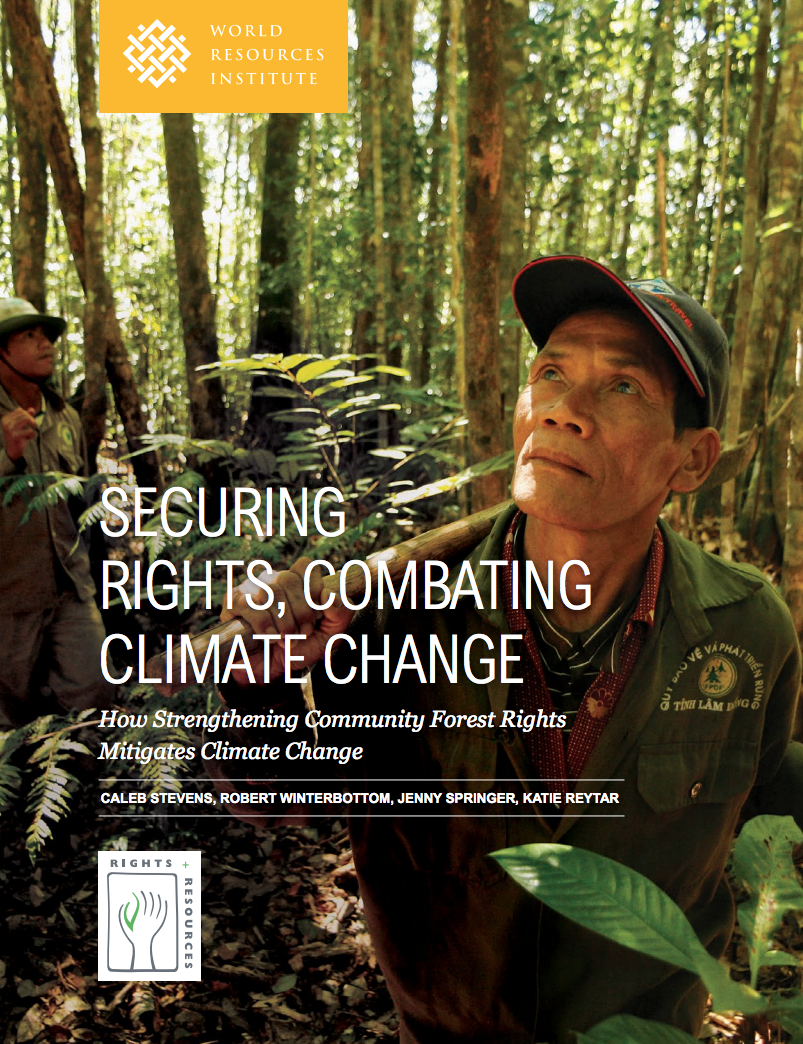Resource information
With deforestation and other land uses accounting for 11 percent of annual global greenhouse gas emissions, the international community agrees on the need to address deforestation as an important component of climate change. Community forests represent a vital opportunity to curbing climate change that has been undervalued. Today communities have legal or official rights to at least 513 million hectares of forests, only about one eighth of the world’s total, comprising 37.7 billion tonnes of carbon. This constitutes a significant volume of global forests in which the legal recognition and government protection of community forest rights can help maintain and protect healthy forests.
Based on studies of legally-recognized community forests in Bolivia, Brazil, Colombia, Ecuador, Guatemala, Honduras, Indonesia, Mexico, Nepal, Nicaragua, Niger, Papua New Guinea, Peru, and Tanzania, Securing Rights, Combating Climate Change finds that deforestation rates inside community forests with strong legal recognition and government protection are dramatically lower than in forests outside those areas.
Brazil’s indigenous territories are a model of success, where legal recognition and government protection have helped indigenous communities resist deforestation pressures and maintain healthy forests: rates of deforestation were 11 times lower in community forests with strong legal recognition and government protection than in other areas of the Brazilian Amazon.
The report also finds that, in addition to legal recognition, governments should enforce the rights of forest communities over their land and prevent encroachments from illegal settlers and loggers. Further, governments should refrain from undermining community forest rights by allocating mining, gas, and oil concessions over community forests.. Without active protection, communities face the loss of the forests that they depend on for their livelihoods, food, and culture.
Strengthening the rights of forest communities presents a vital tool for decreasing CO2 emissions and tackling climate change. We hope that this report will help climate policymakers to take advantage of this tool for addressing climate change that will also secure the livelihoods and sustainable development of people around the world.

